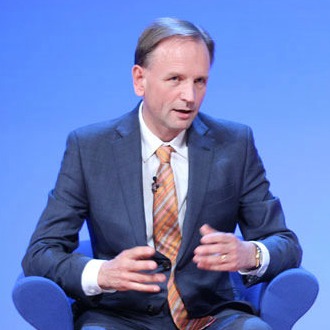The greater use of technology to deliver GP services will encourage part-time GPs to take on extra services and will help mitigate the effects of the ‘inverse care law’, the NHS England chief executive has claimed.
Speaking yesterday at the NHS Confederation conference in Manchester, Simon Stevens suggested the use of digital services in surgeries could help address workforce issues, especially in the most affected areas.
He also claimed that it would help deprived areas, who – according to the inverse care law – are in greater need of more healthcare resources, but are less likely to receive them.
Mr Stevens said there is ‘some evidence’ that digital GP services can encourage part-time GPs to do more sessions.
He said: ‘We’ve got to think creatively about whether some of these new digital models of care delivery, for example in digital general practice, are actually a way of increasing the number of flexible sessions that part-time GPs are willing to work.
‘There is some evidence that that is the case. That has to be one of the tests as we expand this model if we really can get more sessions worked on a flexible basis through these digital methods of delivery and target those on parts of the country. Where there are particular GP shortages this could be a way of dealing with the inverse care law. We’ll be consulting on proposals in that respect next week.’
Mr Stevens also confirmed that NHS England will consult on the rules around out-of-area registration and ‘digital-first primary care. from next week.
GP practices have been able to register new patients who live outside their practice area – without any obligation to offer home visits – since 2015.
Babylon Health has used this opportunity to attract more patients living outside its catchment area and offer digital consultations, which in turns has prompted NHS England to review the rules around out-of-area registration.
The GP contract states that out-of-area arrangements ‘were originally set up to allow a relatively small number of patients to choose to register with a practice in a more convenient location than their home address’. But it adds that those rules ‘were not designed with digital registration in mind, and they need to be revisited’.
A recent independent report, commissioned by Hammersmith and Fulham CCG and conducted by Ipsos Mori, revealed that GP at Hand patients are younger and healthier than those who use traditional primary care services but are higher users of primary care.
Pulse October survey
Take our July 2025 survey to potentially win £1.000 worth of tokens













